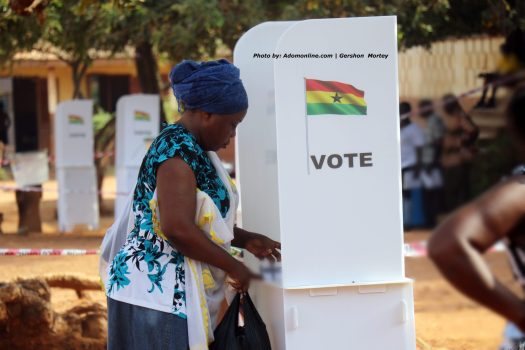As Ghana prepares for its 2024 general election, the political atmosphere is charged with anticipation and speculation. This election is particularly noteworthy due to the diverse array of candidates and the emergence of new political movements, such as the Movement for Change (MFC), which is fielding Alan Kyeremanten as its candidate.
Key Candidates and Parties
- New Patriotic Party (NPP): The ruling party, which has been a dominant force in Ghanaian politics, is gearing up for another competitive race. Their Candidate: Dr. Mahamudu Bawumia The current Vice President, Bawumia, is campaigning on the NPP’s record of Free Education, infrastructural development and digital transformation but the party is expected to field a strong contender.
- National Democratic Congress (NDC): The main opposition party is also preparing for the election, with former President John Dramani Mahama being a likely candidate. Mahama has a solid base and a wealth of political experience.
- Movement for Change Ghana (MFC): A new entrant in the political arena, the MFCG is led by Alan Kyeremanten. Kyeremanten, a seasoned politician and former member of the NPP, brings a fresh perspective and a promise of change.
Polling Data and Trends
As we approach the election, various polling organizations have been gauging public opinion. Here’s a look at some recent polls:
- Afrobarometer (June 2024): This poll indicated a tight race between the NPP and the NDC, with both parties receiving around 40% support from likely voters. The MFC, while a newcomer, showed a respectable 10% support, indicating potential for growth as the campaign progresses.
- Ipsos Ghana (May 2024): According to Ipsos, the NDC had a slight edge with 42% of the vote, compared to the NPP’s 38%. The MFC was polling at 8%, with a significant number of undecided voters.
- Ghana Centre for Democratic Development (CDD-Ghana) (April 2024): This poll reflected a more pronounced lead for the NDC at 45%, the NPP at 35%, and the MFC at 7%. The data suggested that many voters were looking for alternatives to the two major parties.
The Impact of the Movement for Change Ghana
The Movement for Change Ghana, under Alan Kyeremanten’s leadership, is positioning itself as a viable third option for voters dissatisfied with the traditional parties. Kyeremanten’s platform focuses on economic reform, anti-corruption measures, and social justice. His campaign has been gaining traction, particularly among young voters and urban dwellers who are seeking innovative solutions to the country’s challenges.
Kyeremanten’s candidacy represents a significant shift in Ghanaian politics. As a former NPP stalwart, his decision to lead a new movement underscores a desire for political renewal and change. The MFC’s performance in the polls, although modest, highlights a growing appetite for political diversity and reform.
Key Issues and Voter Concerns
Several critical issues are shaping the 2024 election:
- Economic Stability: Ghana, like many countries, has faced economic challenges, exacerbated by global factors such as the COVID-19 pandemic. Voters are keenly interested in how candidates plan to address economic recovery and growth.
- Corruption: Corruption remains a significant concern for many Ghanaians. Candidates are under pressure to present credible plans for combating corruption and promoting transparency.
- Youth Unemployment: With a large youth population, job creation and employment opportunities are vital issues. Candidates’ proposals for education, vocational training, and entrepreneurship will be closely scrutinized.
- Infrastructure Development: Improved infrastructure, particularly in rural areas, is a priority for many voters. Candidates will need to articulate clear strategies for enhancing transportation, healthcare, and education infrastructure.
The 2024 Ghana election promises to be one of the most exciting and closely contested in recent history. With established parties like the NPP and NDC facing challenges from new movements like the MFC, the political landscape is more dynamic than ever. As the election date approaches, voters will be closely watching the candidates’ campaigns, policies, and promises, making informed choices that will shape the future of Ghana.



